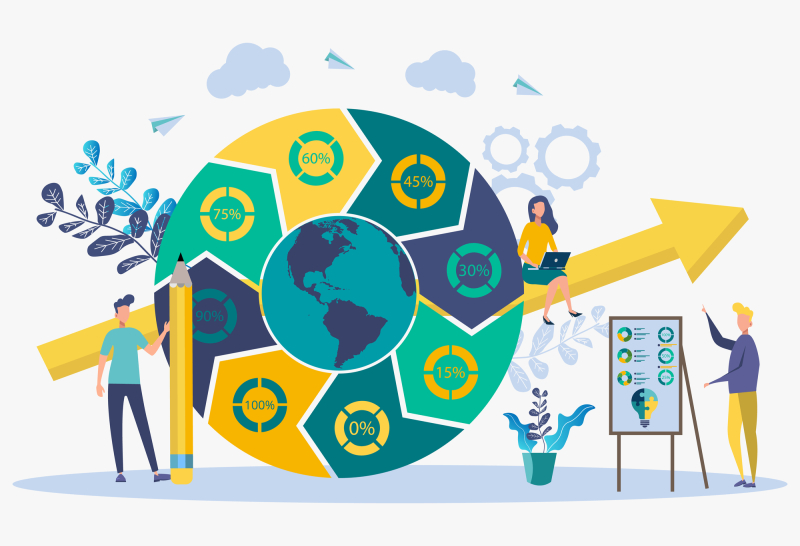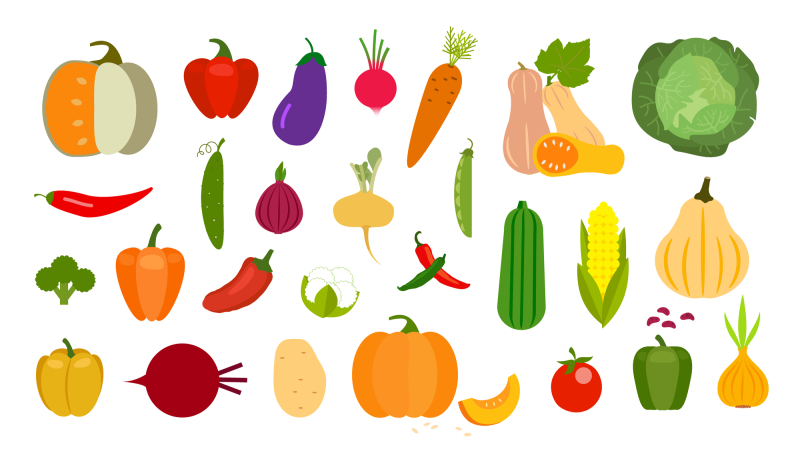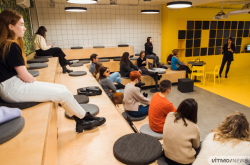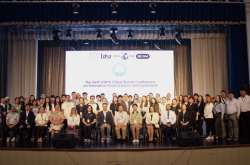Feeding the planet
As of 2022, the population of Earth has exceeded 8 billion people. By 2050, experts expect that number to reach 9.7 billion. The issue is not just about feeding everyone, but doing it without harming the planet. Animal farming and agriculture place a huge strain on natural resources: a third of all arable land and a quarter of all fish crop go towards feeding livestock and poultry. At the same time, humans consume 19 billion chickens, 2 billion pigs, 1.5 billion cows, and 160 billion of farmed fish every year. All this results in huge amounts of greenhouse gas, soil exhaustion, loss of biodiversity, and other negative effects.
To minimize these consequences, humanity must develop technologies that would boost yields while reducing the effects on the environment. One such solution are vertical farms – multi-tiered setups where plants are grown in climate-controlled, closed environments. This not only reduces the space requirements, but also cuts back on water consumption and greenhouse gas emissions. It’s also a worthwhile effort to develop local production and grow produce in the areas of their consumption, thus lowering transportation spending.

Credit: photogenica.ru
Alternative protein sources
Another issue of food production has to do with the high consumption rate of animal protein – and at current rates of population growth, the problem will only get worse. In turn, the high volume of animal farming increases greenhouse gas emissions and puts a strain on ecosystems – raising livestock requires a great deal of area, water, and electricity.
The problem could be solved by extracting protein directly from the plants that these animals consume: soy, peas, sunflower, and many others. Another type of alternative protein is lab-grown meat. Plant-based protein is currently cheaper and easier to produce, while “test tube meat” is several times costlier than the real thing. Still, analysts believe the latter industry has a bright future ahead. Last year, authorities in the US issued the first approval for lab-grown meat. The technology has attracted the interest of major investors and celebrities. For instance, in September 2021 the actor Leonardo DiCaprio announced his investment into the artificial meat startups Mosa Meat and Aleph Farms.
A full cessation of the use of animal protein is unlikely today, and probably not necessary, either – animal protein contains all the essential amino acids. At the same time, partially replacing it with alternative sources would reduce the anthropogenic effects on the environment, as well as help optimize our diets. The popularity of plant-based meats has increased in recent years; according to experts at the venture capital fund Fuel for Growth, the pandemic has helped increase the associated market by 1.5 times.

Credit: photogenica.ru
See also:
Food waste
According to the UN, an approximate 828 million people around the globe suffered from food scarcity in 2022. In the meantime, more than 1 billion tons of unspoiled food goes into the garbage every year – that’s around 17% of all food found in households, retail, and catering.
Most often, food is thrown out once it reaches its expiration date. But the date printed on the packaging isn’t always true to reality and the product itself may remain safe to eat for longer. A possible solution to this issue is smart packaging that would not only protect products from damage and imitation, but also indicate their degree of freshness. This is possible thanks to the use of special sensors that track storage conditions, packaging integrity, the presence of microorganisms, and other factors.
See also:
New packaging
Many food items these days come packed in plastic. While it seems like a convenient approach in the short term, this type of packaging makes up the bulk of plastic waste. Bags and bottles can degrade for hundreds of years, polluting the environment and ending up in the ocean as microplastics.
To solve the issue, it’s not enough to recycle plastic – especially in light of the fact that at the moment, only about 20% of all plastic refuse is recycled. An alternative solution proposed by the foodtech industry is biodegradable packaging made with nanocomposite materials that pose no threat to the environment.

Credit: photogenica.ru
Mindful consumption
Imbalanced diets may cause as much as 11 million deaths annually – claims a recent study published by The Lancet. The most dangerous diet, according to the authors, is one that’s heavy on salt and light on whole-grain products and fruit. According to another study, this one published in European Heart Journal – Quality of Care and Clinical Outcomes, a journal of the European Society of Cardiology, better eating habits may prevent as many as two thirds of all deaths related to cardiovascular diseases.
But today’s fast-paced lifestyles don’t always allow us to pay proper attention to balanced diets and healthy foods – sometimes, it’s easier to grab some fast food or something from the deli section of a supermarket. Among the solutions provided by the foodtech market are various calorie-counting apps, medical data-based personalized nutrition services, and even delivery services that provide users with balanced meal plans.





